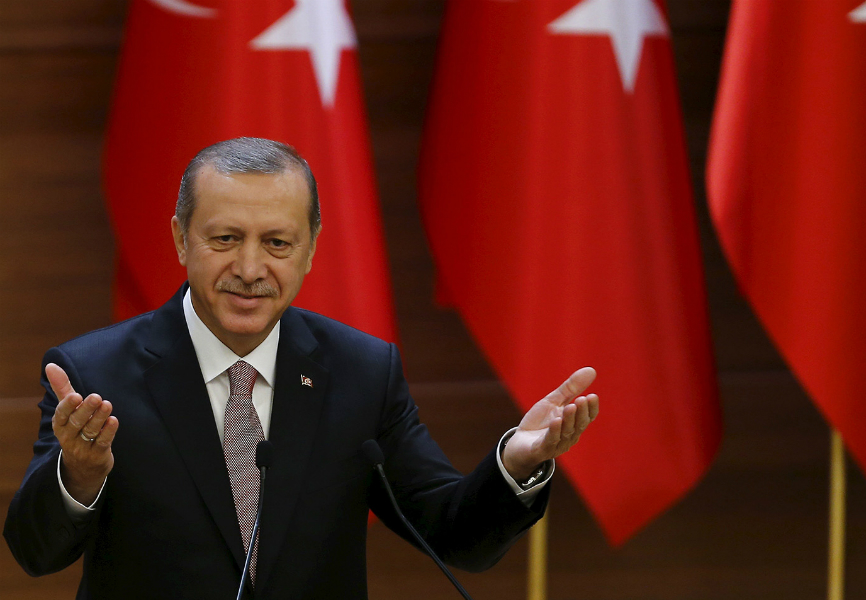Turkey's involvement in the Syrian conflict escalated over the weekend, as Turkish Armed Forces and Free Syrian Army rebels launched a new ground offensive on Saturday, 20 January into the Afrin canton in Northwest Syria held by the Kurdish People's Defense Units (YPG). The military operation came a week after the US announced that it will deepen its cooperation East of the Euphrates with the YPG-dominated Syrian Democratic Forces.
The US has told Turkey to exercise restraint, but Turkish President Recep Tayyip Erdogan lashed back, saying that he will not back down, while implying that Russia had given its support to the operation.
Eurasia Group Europe associate
James Sawyer discusses how these latest events will impact the already damaged ties between Turkey and the US:
Last week's announcement of deeper US military coordination with Syrian Kurds provoked a strong response from Turkish President Recep Tayyip Erdogan. Add the controversy over the extradition of exiled cleric Fethullah Gulen, the recent visa crisis, the prosecution of a Turkish citizen on charges of violating Iran sanctions, and other sources of resentment. How badly damaged are Turkey-US relations at the moment?
In response to the announcement of US cooperation with the Syrian Democratic Forces to establish a border security force, President Erdogan lashed out, calling the newly formed force a “terror army” and vowing to “cleanse” the Afrin canton of Kurdish fighters. US-Turkey relations were already on the rocks following the conviction of former Halkbank deputy CEO Mehmet Hakan Atilla for violating US sanctions on Iran. Goodwill towards Turkey has evaporated across many US government institutions, and Erdogan has demonstrated once again his tendency to use anti-American rhetoric to stoke nationalist sentiment at home. This plays directly into Erdogan's strategy to rally Turks round the flag ahead of elections, which will probably be held this year. However, this runs deeper than electoral grandstanding; US-Turkey ties are fundamentally damaged.
French President Emmanuel Macron said recently that it's clear Turkey won't join the EU and that discussions should begin on an alternative form of partnership. What does this mean for Turkey-EU relations?
Turkey and the EU have not officially given up on Turkey joining the union, but all signs indicate that political leaders on both sides accept that the process is deadlocked. EU leaders see Erdogan's constitutional reforms to introduce a presidential system as incompatible with EU accession criteria, and Turkey refuses to budge on sensitive issues like terrorism. But neither side is rushing to say the relationship is over. Instead, they are moving towards a more transactional relationship. The EU is still Turkey's most important trading partner and Ankara has no alternative to NATO. Likewise, the EU sees Turkey's contributions to refugee management and regional security as beneficial enough to overlook its imperfect record on human rights, particularly when EU member states aren't any closer to an agreement on how to internally manage the burden of refugees.
What role would Erdogan like for Turkey to play in the future of the Middle East? How likely is that vision to be realized?
Erdogan's top priority in the Middle East is to keep the Kurdistan Worker's Party (PKK) and its affiliates, like the Syrian Democratic Union Party (PYD) in check. This explains why we've seen harsh words from Erdogan in reaction to US news about deepening cooperation with the PYD, and it also underscores why Turkey has invested so much in the Russia-led Astana and Sochi peace talks. Turkey hopes that a political solution will curb growing Kurdish autonomy in the region. But Erdogan also has broader ambitions to lead the Sunni world, which sometimes pit him against other Sunni powers like Saudi Arabia and the United Arab Emirates. We've seen Erdogan advance a different brand of regional leadership, backing powers that seek to overturn the status quo – such as Qatar – much to the frustration of Riyadh and Abu Dhabi.


